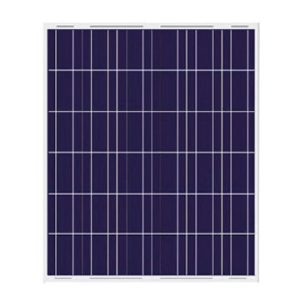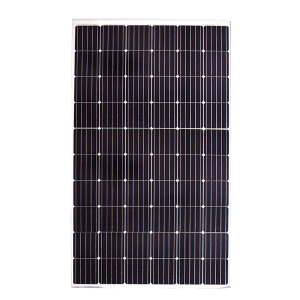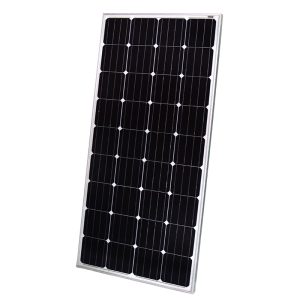Solar Exporters is a leading solar panel and solar module manufacturer based in China, with over 12 years of experience in production and quality control since 2010. We provide high-quality solar products including solar panels, lighting, components, and complete systems.
What is a 40 Watt Solar Panel?
A 40 watt solar panel is a small to medium-sized solar photovoltaic (PV) panel that has a power output rating of 40 watts. This means that under optimal sunlight conditions, the solar panel can produce up to 40 watts of electricity per hour.
40 watt solar panels typically consist of a PV module made up of 36 monocrystalline or polycrystalline silicon solar cells enclosed in an aluminum frame, along with electrical connections. Monocrystalline panels tend to have higher efficiency than polycrystalline, especially in warm weather climates.
Key Specifications and Features
Some key specifications and features of typical 40 watt solar panels are:
- Power Output: Up to 40 watts (2.2 Amps at 18 Volts) under peak sun conditions
- Solar Cell Efficiency: Around 15-17%
- Dimensions: Approximately 26 x 22 inches (65 x 56 cm)
- Weight: 8 to 12 lbs (3.6 to 5.4 kg)
- Frame: Anodized aluminum for weather resistance
- Glass: Low iron tempered glass
- Operating Temperature: -40°F to 185°F (-40°C to 85°C)
- Warranty: Up to 25 years limited power output warranty
40 watt panels offer a compact, lightweight, and affordable option for various off-grid, RV, and backup power applications. Their small size makes them highly versatile and portable.
How Much Power Can a 40 Watt Solar Panel Produce?
The amount of power a 40 watt solar panel can produce per day depends on several factors:
- Sunlight Hours: The more direct sunlight that hits the solar panel, the more electricity it can generate. Peak sunlight hours vary by location and season.
- Orientation & Tilt: Properly orienting solar panels to face direct sunlight (facing south in northern hemisphere, north in southern hemisphere) and tilting them at an optimal angle can increase power production.
- Shading: Even minor shading from trees, buildings etc can greatly reduce power output.
- Ambient Temperature: Solar panels are more efficient at cooler temperatures.
- Dust: A dirty or dusty panel will not allow full sunlight absorption.
Taking these factors into account, a 40 watt solar panel in a favorable location and position can generate 40 watts per hour, or 2.2 amps at around 18 volts during peak sunlight hours.
Over the course of a 5 hour period of full sun, this equates to 200 watt-hours (Wh) of solar electricity. This is enough to power a standard 20 watt LED light bulb for 10 hours, or partially charge devices like laptops and smartphones multiple times.
Actual output will be lower on cloudy days or if the angle of the sun is less direct. It also depends on the efficiency of the solar charge controller and batteries used.
What is a 40 Watt Solar Panel Used For?
While a 40 watt solar panel output is relatively small, these panels can still provide practical solar electricity solutions for:
- RV and Marine Applications: Keep auxiliary and house batteries charged to power lighting, appliances and electronics on recreational vehicles.
- Remote Cabins: Provide lighting and limited electricity for remote cabins or sheds located away from grid power.
- Off-Grid Telecom: Power remote telecommunications equipment like cell boosters, WiFi repeaters, sensors etc.
- Solar Gardens: Use multiple 40 watt panels together to run garden or landscape lighting.
- Emergency Power: Store backup energy with batteries to use essential devices during power outages.
- Portable Power: Pair with a power station to take renewable solar power anywhere.
With the right batteries and power management equipment, one or more 40 watt panels can provide modest electricity needs in a wide range of applications.
How Many Solar Panels Do You Need to Power a House?
To fully power an entire house, more than a single 40 watt solar panel is usually required, unless you have a very small energy efficient home. As a rough estimate:
- Small 1-2 bedroom home: 3-4 kW system (7-10 x 400W panels)
- Average 3-4 bedroom home: 5-8kW system (12-20 x 400W panels)
- Large luxury home: 10-15kW+ system (25-38 x 400W panels)
The actual number of solar panels needed depends on factors like your location, roof space, energy usage, and local electricity rates. Installing more panels than you need is not cost effective.
Our professional team can help design an appropriately sized solar system for your specific home’s energy requirements. We offer complete installations including solar panels, mounting equipment, inverters, batteries and smart monitoring systems.
How to Set Up a 40 Watt Solar Panel
40 watt solar panels are quite easy to set up even for DIY installation. However it’s important to take electrical safety precautions when working with solar equipment. Key steps include:
- Choose a sunny location to mount the solar panel, free from shade and obstacles. Rooftops, ground mounts or pole mounts are common options.
- Secure the panel in position facing true south (northern hemisphere) or true north (southern hemisphere) using mounting brackets designed for solar panels.
- Run wiring from the solar panel to your application’s location, taking the safest and most direct route possible. Use UV-resistant outdoor-rated cable.
- Connect the solar panel leads to a solar charge controller or regulator. Never connect a panel directly to a battery without a charge controller in between. Controllers prevent overcharging and battery damage.
- Connect the charge controller to your battery bank or application as per the manufacturer guidelines. Fuses should also be installed into the system.
Our solar experts can help with complete system sizing, design and installation services. We also offer free quotations and technical advice.
Pairing a 40 Watt Solar Panel with Batteries
Using one or more 40 watt solar panels together with batteries provides a stored source of renewable energy that can be used anytime, even at night or on cloudy days.
Deep cycle lead-acid batteries are the most common choice for solar systems, however lithium-ion batteries can also provide longer lifetimes and better performance. When pairing any solar panel with a battery, a solar charge controller is essential to regulate charging and prevent battery damage from overcharging.
As a rough guide, a 40 watt solar panel can be used to charge and maintain a 12V lead-acid battery up to about 250Ah (Amp-hour) capacity, replacing between 9-17Ah per day depending on sun availability, battery age and system efficiency.
This would roughly equate to a single 100Ah battery, or two to three 100Ah batteries wired in parallel. Our team can help select correctly sized components for your application.
Do I Need a Charge Controller with a 40 Watt Panel?
Yes, using any solar panel without a solar charge controller carries risks of overcharging batteries and causing premature failure or even fire hazards. Charge controllers regulate the voltage and current from a solar panel to safely charge batteries at optimal levels.
40 watt solar panels typically produce over 18 volts open circuit voltage when not charging a battery, while 12V batteries require between 13.5V to 15V for charging depending on battery type. Without regulation this mismatch can rapidly damage batteries.
Our range of solar charge controllers are designed specifically to pair with solar panels from 10W up to 1000W and larger systems. Contact our team for professional advice on selecting the right components for your solar power system.
40 Watt Solar Panel Price
Pricing for 40 watt solar panels typically ranges from around $50 up to $300 depending on the brand, quality, features and certifications. On average, most quality 40W panels fall in the $100 to $150 range.
Panels meeting higher testing standards for durability and longevity or made by premium brands understandably demand higher prices but can provide better return on investment in the long run.
When comparing solar panel quotes, be sure to consider factors like:
- Efficiency ratings
- Estimated lifetime energy yield
- Product certifications
- Warranty periods
- Reputability of the manufacturer
Reputable wholesalers like Solar Exporters focus on quality while keeping pricing as affordable as possible even for premium products. Contact us for latest pricing and ordering solar panels in bulk.
Why Choose Solar Exporters for Your 40W Solar Panels?
With over 12 years industry experience since 2010, Solar Exporters offers high quality solar panels and complete system solutions at wholesale prices. Some key reasons to choose us include:
- Latest Technology: We stay on top of the latest advances in solar cell technology to incorporate into our panels
- High Efficiency: Our monocrystalline panels provide some of the best efficiency ratings available
- Durable Products: Designed to withstand harsh environments for 25+ years
- Complete Systems: We offer full solutions including panels, mounting, inverters, batteries, and monitoring
- Professional Team: Our experts can provide solar advice and system design services
- Affordable Pricing: Wholesale pricing available with bulk orders
- Industry Certified: Our panels are CE, RoHS, ISO9001 and TUV certified for safety and quality assurance
In addition to our professionalism and competitive pricing, Solar Exporters is committed to providing excellent customer service from inquiry through to installation and after-sales support. Discover why we are one of China’s leading solar panel manufacturers.



